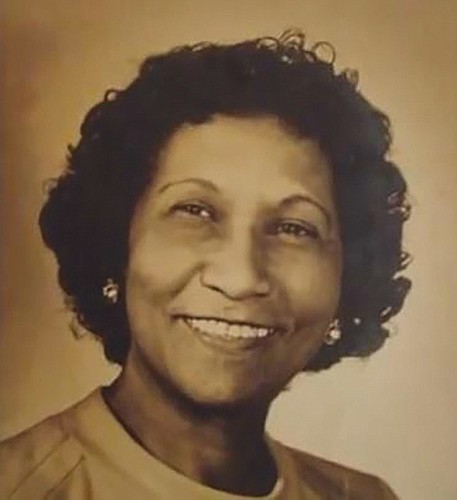
History often repeats, and there often are parallels between the news of today and 50 years ago. Here are some of the top news stories of this week in 1967 compiled from the Jacksonville Public Library’s periodical archives by Associate Editor Max Marbut.
Jacksonville’s two black female City Council members, Sallye Mathis and Mary Singleton, announced their intention to run for council seats in the new consolidated city-county government that would take effect Oct. 1, 1968.
Both were elected in 1967. They were the first women council members in city history and the first black members since early in the century.
Mathis, who represented the Third Ward, would seek to represent District 8 under consolidation. She was one of three members of the City Pardon Board, chair of the council’s Appraisals, Printing and Advertising Committee and a member of three other committees.
Singleton was council vice president and received the most votes among council candidates in the spring election. She was chair of the Licenses and Taxation Committee and a member of the Laws and Rules and Budget and Finance committees.
She represented the Second Ward and would seek the new District 11 seat.
Jacksonville appeared certain to land the 1968 American Football League All-Star Game when a group of business owners agreed to underwrite $85,000 of the $103,000 guarantee needed to bid for the event, scheduled Jan. 21 and to be nationally televised.
A meeting of business and civic leaders at the Green Derby restaurant got the ball rolling.
“Don’t worry, we’ll get the money to bring this great game to Jacksonville,” Abe Fletcher said.
Mayor Hans Tanzler registered his support for the effort, calling himself a “dyed-in-the-wool pro football fan.”
He and City Commissioner Dick Burroughs said that if the game should happen to be a financial flop, the city would consider writing off the stadium rental if the commission and City Council would agree.
If the game was a success — a crowd of at least 25,000 at $5 a seat was the break-even point — the underwriters would have to contribute nothing.
Jacksonville Charities Inc., as the sponsoring group, would distribute any profits.
Henry Kramer, director of Jacksonville Charities, said that Frank Norris, honorary board chairman of Barnett First National Bank, would be the event’s treasurer. Kramer also said many cities would “leap at the chance” to host the game and Jacksonville would receive “millions in national TV publicity, so this is a very small guarantee.”
And in addition, “A good turnout on Jan. 21 could put us in the good graces of football people looking for expansion in days to come,” he said.
Nearly 120,000 pupils returned to classrooms when Duval County Public Schools opened the 1967-68 term.
More than 4,000 classroom teachers were on hand to greet students on the first day, the Tuesday after Labor Day.
School administrators eliminated 120 classroom teaching positions when they prepared the proposed 1967-68 public instruction budget of $56.7 million, which was pending approval by the Duval County Budget Commission. In addition to the teaching posts, almost 50 other positions also were eliminated.
The budget also raised the student-teacher ratio by one. The new ratio was 26-to-1 in elementary schools and 31-to-1 in secondary schools.
Meanwhile, Gov. Claude Kirk was promoting his proposal for a statewide study of education and a master plan that would, he claimed, “bring quality education to Florida by 1975.”
Some were disappointed that Kirk said he wouldn’t call a special session of the legislature on education until his master plan was complete, which he said would be November 1968.
Duval County School Board Chairman M.C. Harden agreed with the master plan concept, but said it wouldn’t solve the immediate problems regarding school financing.
“If you have a starving child on the street today, and you say to him that you are planting crops which will feed him in 1968, it doesn’t solve the problem,” Harden said.